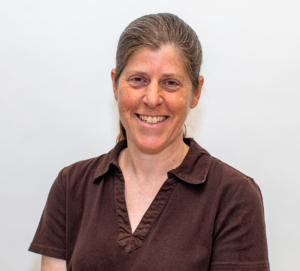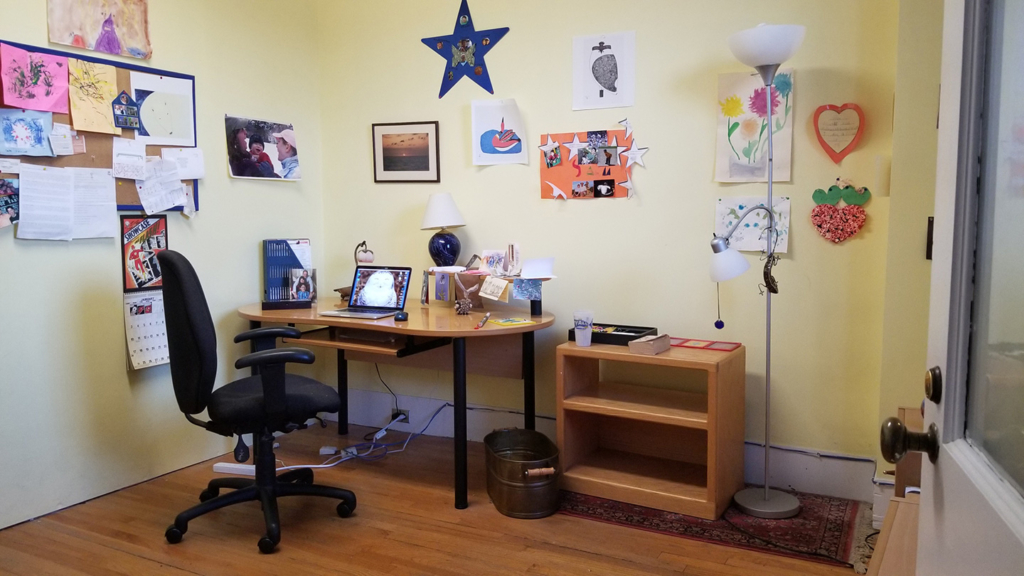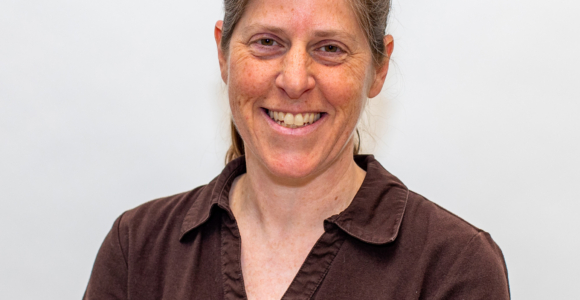Web Design at Work
Freelancing can be a solitary enterprise, even for creatives who work in shared spaces. The strategies we use to survive, however, are common. In this series Web Design at Work, I interview my colleagues in marketing and advertising to learn how they live, work, and thrive in this constantly changing field.

Today we talk to Rachel Jellinek, President of Reflection Films, based out of Arlington, MA. Rachel holds a BA from University of Michigan and an MA from Harvard University. She has a background in nonprofit work in public health and education, enjoys jigsaw puzzles, going for walks, and cooking.
Tell me about your journey into being an independent business owner. What training did you start with, and how did you end up doing the work you do today? Were there any surprises along the way? How long did it take to get your first paying client?
I never intended to start my own business, let alone do it with my husband, but that’s what happened, and it’s awesome! We’re in our fifteenth year and are really grateful for all of the wonderful people we get to work with.
Reflection Films got its start, unfortunately, out of personal loss. My father-in-law, Frank Birmingham, died unexpectedly from a heart attack. We created a tribute video in his honor, and out of that experience, the company was born, originally focusing on oral history and family legacy videos.
A while back I transitioned our focus to video storytelling for mission-driven organizations and businesses. We do filming and animation, typically for a fundraising, marketing or training purpose.
In terms of training, Geoff’s background is in film. My background is in the nonprofit world. I worked at several organizations that had a focus on education and health.
As for surprises along the way, there have been loads of them! One of the biggest ones is to see how my perspective has changed over time. When we first started the business, I was afraid of competition and looked at things territorially and from a scarcity mindset. I’m happy I was able to shed that way of thinking and recognize that there’s lots of opportunity out there and that collaboration can be great.
I don’t remember exactly how long it took us to get our first paying client. I do remember that Ellen McLaughlin, who was the Executive Director of Tutoring Plus at the time, was one of the first people at a nonprofit to hire us, which was very exciting.
Send me a picture of your office setup. No—stop! Don’t clean up your desk, just take it as is.

Do you have to put on pants to work?
If I’m meeting with someone, then you can usually find me in a skirt of some sort.
If not, then you can usually find me in some exercise clothes, since I like to move around a lot.
How do you manage your time? Do you use any specific tools or services to help control your workflow?
I use my digital calendar strategically. I color code the different hours of my day, based upon the type of task I’m accomplishing. Scheduled calls and meetings are in red. Exercise time is in orange. Prospect research, outreach, and writing are blocked off in green, blue and yellow. I like seeing the different colors and having a variety of tasks to concentrate on.
Newbie freelancers often have two major questions when it comes to freelancing: How do you attract clients to get started, and How do you afford to pay your bills without a regular paycheck?
When I first started out doing business development, I really had no idea what I was doing. But I did know that I enjoyed meeting new people, so I went to any and every networking event I could find that was free. Being big on goal-setting, I wouldn’t allow myself to leave an event until I’d spoken with at least ten people. I was sure to follow up with them the next day, not in a salesy way, but in a genuine “it was nice to meet you” way. In addition to attending events, I also did cold-calling, which was awkward at first but got easier over time.
In my experience, you have to be willing to see and seek opportunity everywhere and all the time.
As for paying bills, quite honestly, early on, we jumped at any project that came our way, because we were eager to have the income and also eager to build our portfolio. Over time and after taking a Sandler sales training class through one of their local franchises called Winning, Inc. I learned that sales is a two-way street, and that it doesn’t make sense to take every opportunity and potentially force a fit, because that winds up being costlier in the long run.
Can you share a story about your favorite (or least favorite) client experience? What can freelancers and/or clients do to make working together better for everyone?
Our worst client experience was working for a lawyer, whom we call “He Who Shall Not Be Named.” At the end of the project, he decided that he didn’t feel like paying us what he owed and said, “What are you going to do about it? Sue me?” The experience working with him had been such a pain already that for our mental health, we just decided to move on.
I can honestly count on one hand the number of unpleasant client experiences we’ve had in our fifteen years. And to his credit, one of those clients (not He Who Shall Not Be Named) realized he was being really rude and apologized to us, which made things better.
In terms of how to make working together better, I’d say that giving people the benefit of the doubt is always a good rule of thumb, but if after doing that, you feel like something’s not right, then say something… tactfully, but do say something. If you can’t communicate clearly with each other, then that’s a problem. We’ve baked open communication into Reflection Films’ culture, so people expect it from us and have come to know that we appreciate their openness and honesty with us too.
Lastly, this series is meant to give neophytes insight into the experiences of freelancers who’ve been around the block once or twice. What are three things you wish you knew when you started as an independent business owner?
How important it is to not get complacent about business development—in my experience, you have to be willing to see and seek opportunity everywhere and all the time.
How important it is to set up systems early on and maintain them—whether it’s putting contacts into your database or creating your communications calendar for blog posts and e-news. Setting up solid systems and routines can make life a lot easier.
How important it is to network with other business owners—whether I meet someone in the early stages of their business, in the middle of the road, or later as they are phasing out, I always learn something from their experiences.



